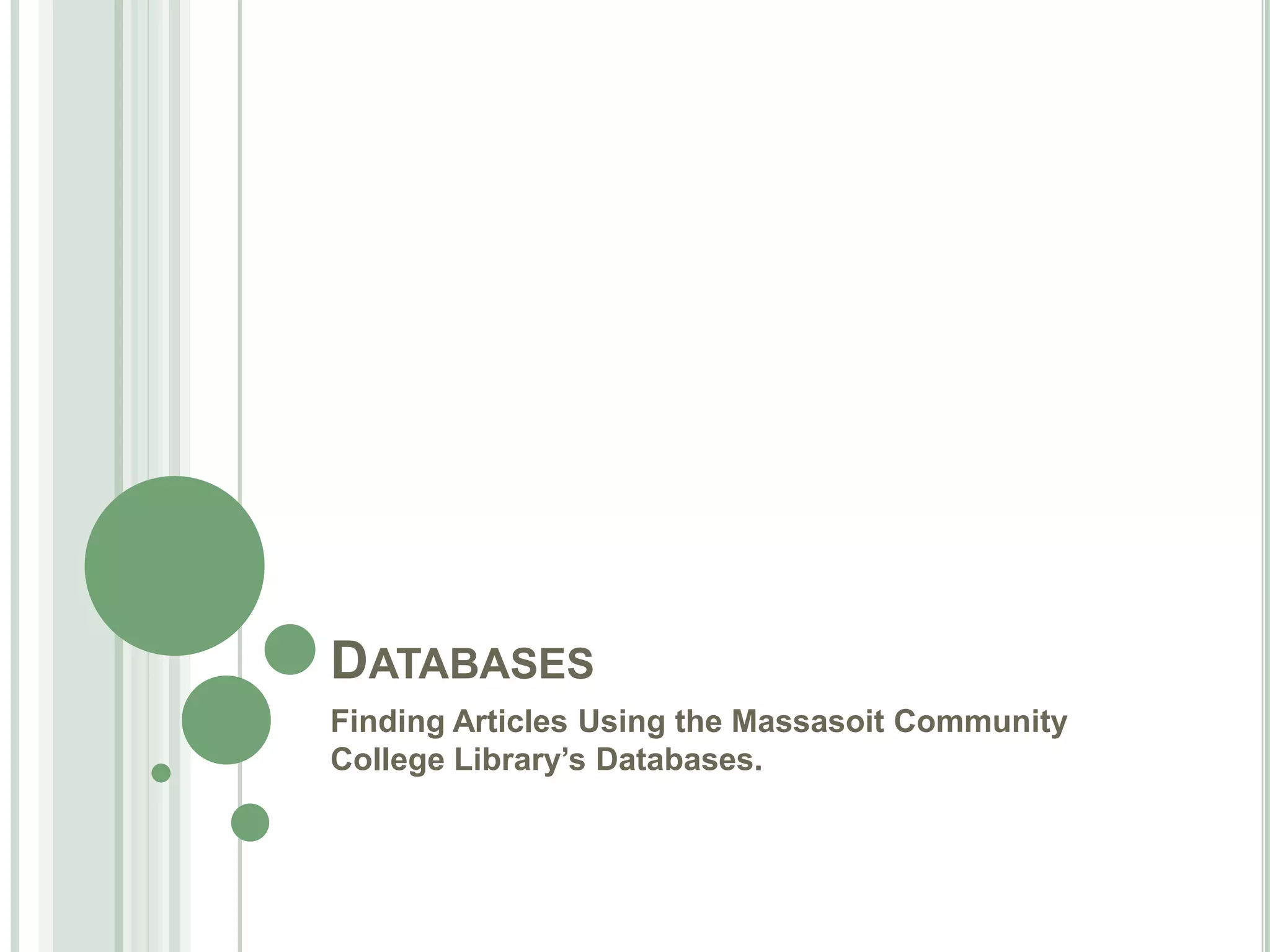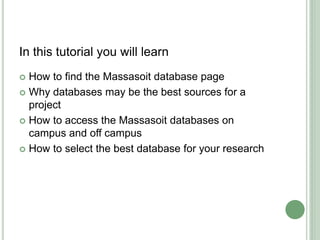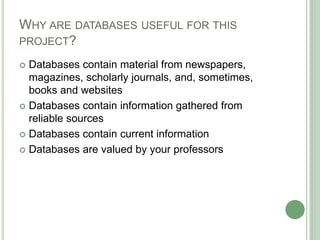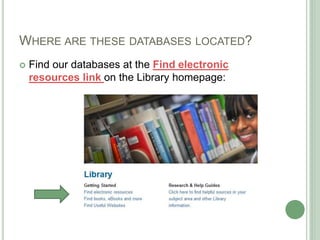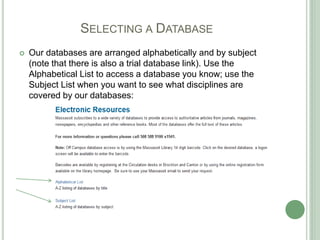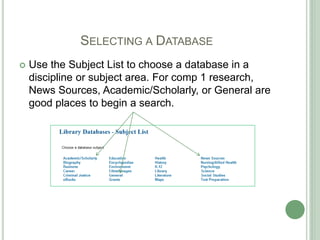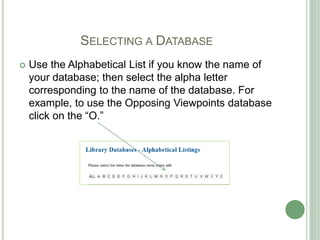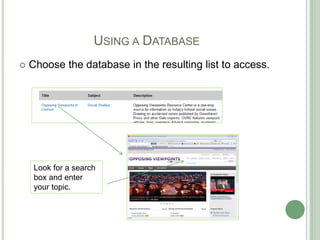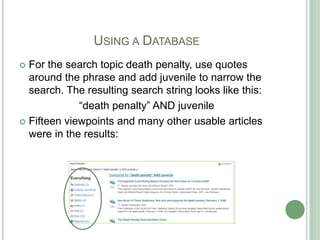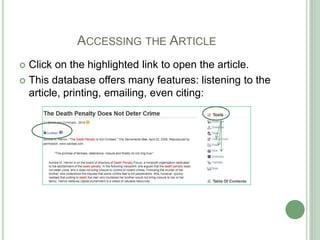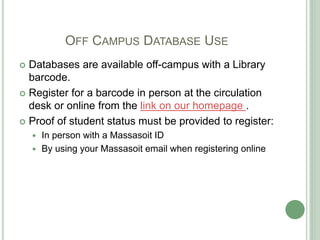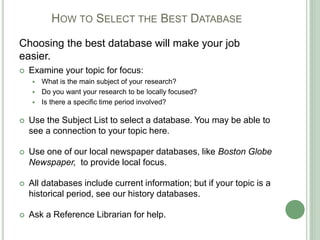This document provides instructions for finding and using databases through the Massasoit Community College Library. It explains that databases contain articles from reliable sources and current information that is valued by professors. It describes how to access the library's databases online and off campus with a barcode. The document gives guidance on selecting an appropriate database based on one's research topic and subject area. Students are advised to use subject listings and ask a reference librarian for assistance in choosing the best database to efficiently find relevant sources.
